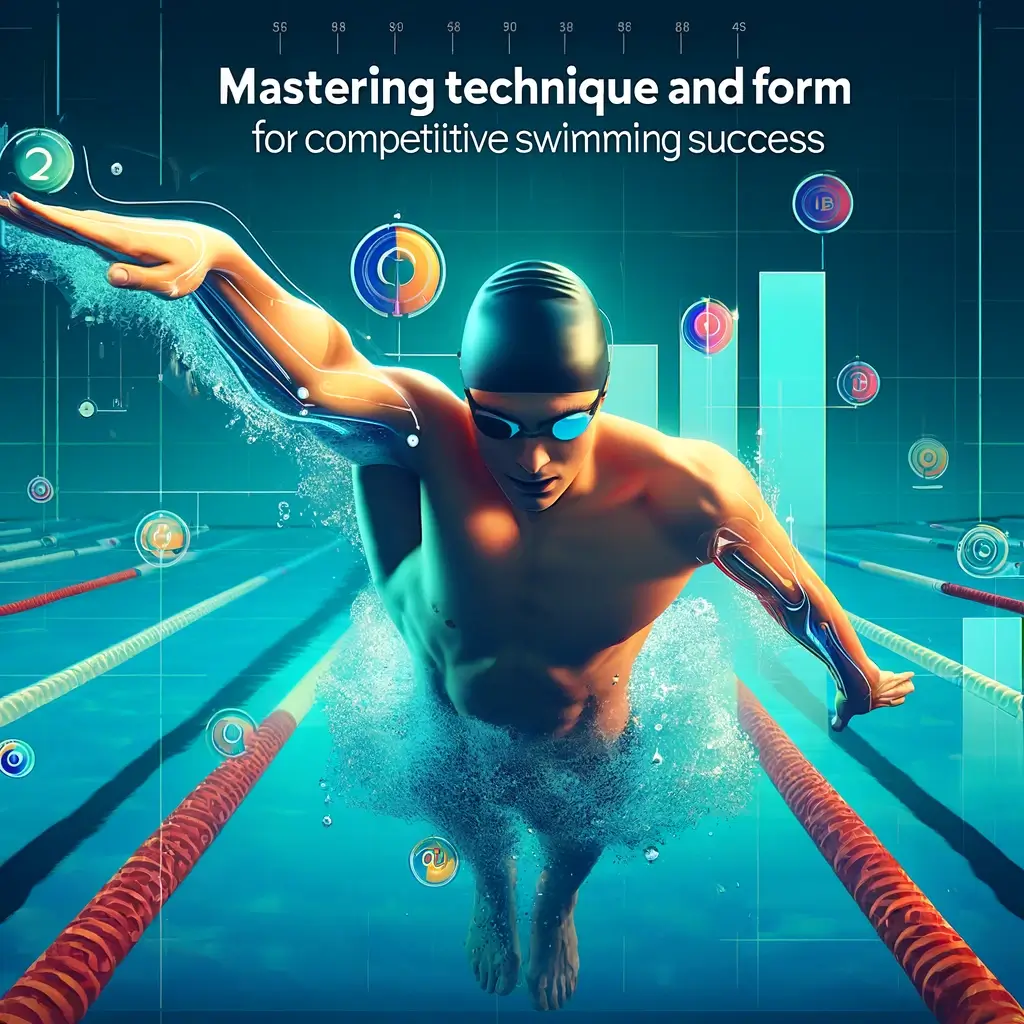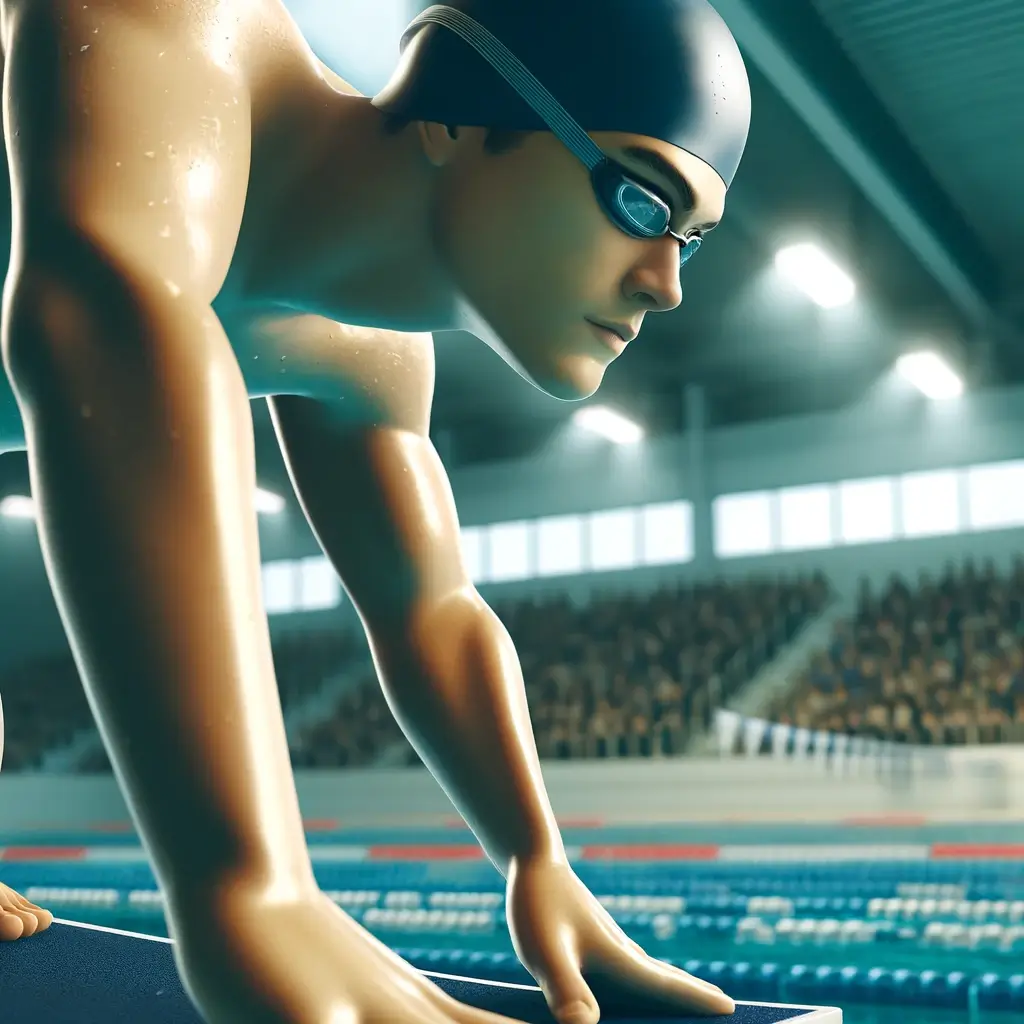Competitive swimming is an awe-inspiring sport, known for its blend of grace, speed, and endurance.
Watching top swimmers glide effortlessly through the water during competitions, it’s easy to marvel at their skill and wonder just what it takes to reach such levels of performance.
But how hard is it really to become a competitive swimmer?
The answer is complex, involving a combination of
- Physical demands,
- Mental fortitude, and
- Lifestyle commitments.
The Physical Demands of Competitive Swimming
Training Regimen of a Competitive Swimmer
Competitive swimmers train extensively, often practicing multiple times a day.
Early morning sessions followed by afternoon workouts are common.
A typical training schedule might include 2-4 hours of swimming daily to fit your body, coupled with dryland training that includes strength and conditioning exercises.
Technique and Form for Competitive Swimming Success
Perfecting swimming technique is crucial.
Each stroke has its own nuances, and small adjustments can significantly impact performance.
Competitive swimmers spend countless hours honing their form, with the help of coaches who provide detailed feedback on everything from hand position to body rotation.

Related: How to train Like a competitive Swimmer
Endurance and Speed
Swimming requires a unique blend of endurance and speed.
Athletes must be able to maintain a fast pace over long distances, which demands exceptional cardiovascular fitness and muscle endurance.
Interval training, long-distance swims, and sprint sets are all integral parts of a swimmer’s training program.
Essential Injury Prevention Tips for Competitive Swimmers
Despite being a low-impact sport, swimming at a competitive level carries risks of overuse injuries, such as swimmer’s shoulder and knee problems.
Preventing these injuries requires not only proper technique but also strength training and flexibility exercises to ensure balanced muscle development and joint stability.
How to Overcome the Mental Challenges in Competitive Swimming
How To Develop Mental Toughness for Peak Performance in Swimming
Mental resilience is key in competitive swimming. Athletes face grueling training sessions, intense competitions, and the pressure to continually improve.
The ability to stay focused, motivated, and positive, even in the face of setbacks, is crucial for success.
Effective Race Strategy
Competitive swimming isn’t just about physical prowess; it’s also about strategy. Swimmers need to plan their races, knowing when to conserve energy and when to push hard.
This involves a deep understanding of pacing and the ability to make split-second decisions during a race.

Techniques for Handling Pressure in Competitive Swimming
The competitive environment can be highly stressful.
Swimmers must perform well under the watchful eyes of
- Coaches,
- Teammates, and
- Spectators.
Managing this pressure, staying calm, and delivering peak performance during races are essential skills.
Lifestyle Commitments
Time Management
- Balancing training,
- Competitions,
- School or work, and
- Personal life is a significant challenge for competitive swimmers.
The demanding training schedule leaves little room for other activities, requiring excellent time management and often sacrifices in other areas of life.
Related: How many times a week is best to swim
Diet and Nutrition
A swimmer’s diet plays a crucial role in their performance.
Proper nutrition provides the energy needed for training and helps with recovery. Competitive swimmers need to follow a balanced diet rich in carbohydrates, proteins, and healthy fats, and they must stay hydrated.
The Importance of Sleep and Recovery in Competitive Swimming
Adequate rest is vital. The body needs time to recover from intense training sessions. Competitive swimmers often prioritize getting sufficient sleep and incorporating recovery strategies such as stretching, massage, and relaxation techniques into their routines.
The Rewards
Despite the challenges, the rewards of competitive swimming are immense.
Athletes experience the thrill of competition, the satisfaction of personal improvement, and the camaraderie of the swimming community.
Achievements, whether they’re personal bests or podium finishes, provide a sense of accomplishment and validation of the hard work put in.
Conclusion
Becoming a competitive swimmer is undoubtedly challenging.
It requires dedication, physical and mental strength, and significant lifestyle adjustments.
However, for those passionate about the sport, the effort is well worth it. The journey of a competitive swimmer, filled with discipline, resilience, and moments of triumph, is a testament to the incredible potential of the human body and spirit.
If you’re ready to dive into this demanding yet rewarding world, you’ll find that the pursuit of excellence in swimming can be one of the most fulfilling endeavors you ever undertake.
Looking for a swimming club in Toronto?
Don’t worry, we’ve got you covered?
At Toronto’s High Park Area Rocket Swim Club, we offer a range of swimming programs to suit everyone.
Whether you’re interested in non-competitive swimming for fun and fitness, adult swimming lessons to build confidence, or family swimming sessions for quality time together, we have the perfect program for you.
Ready to make a splash?
Explore our programs and join the Rocket Swim community today.

